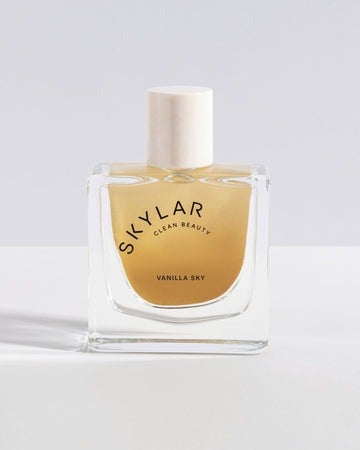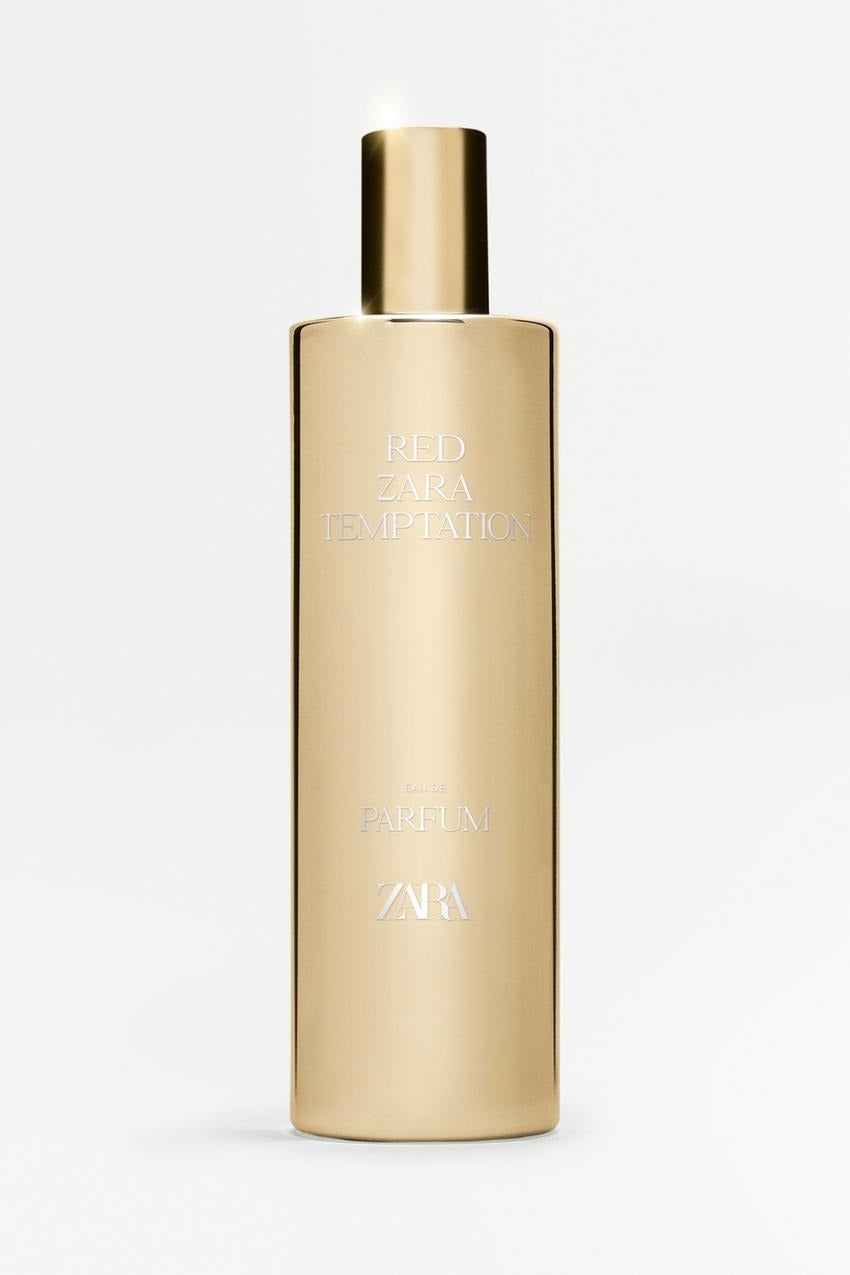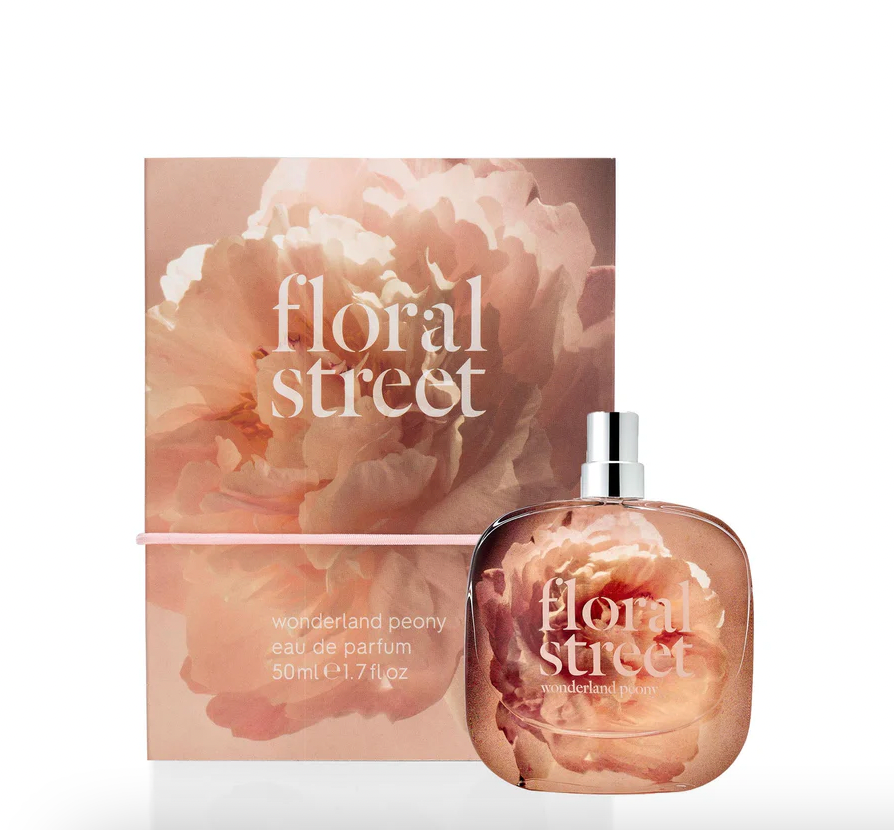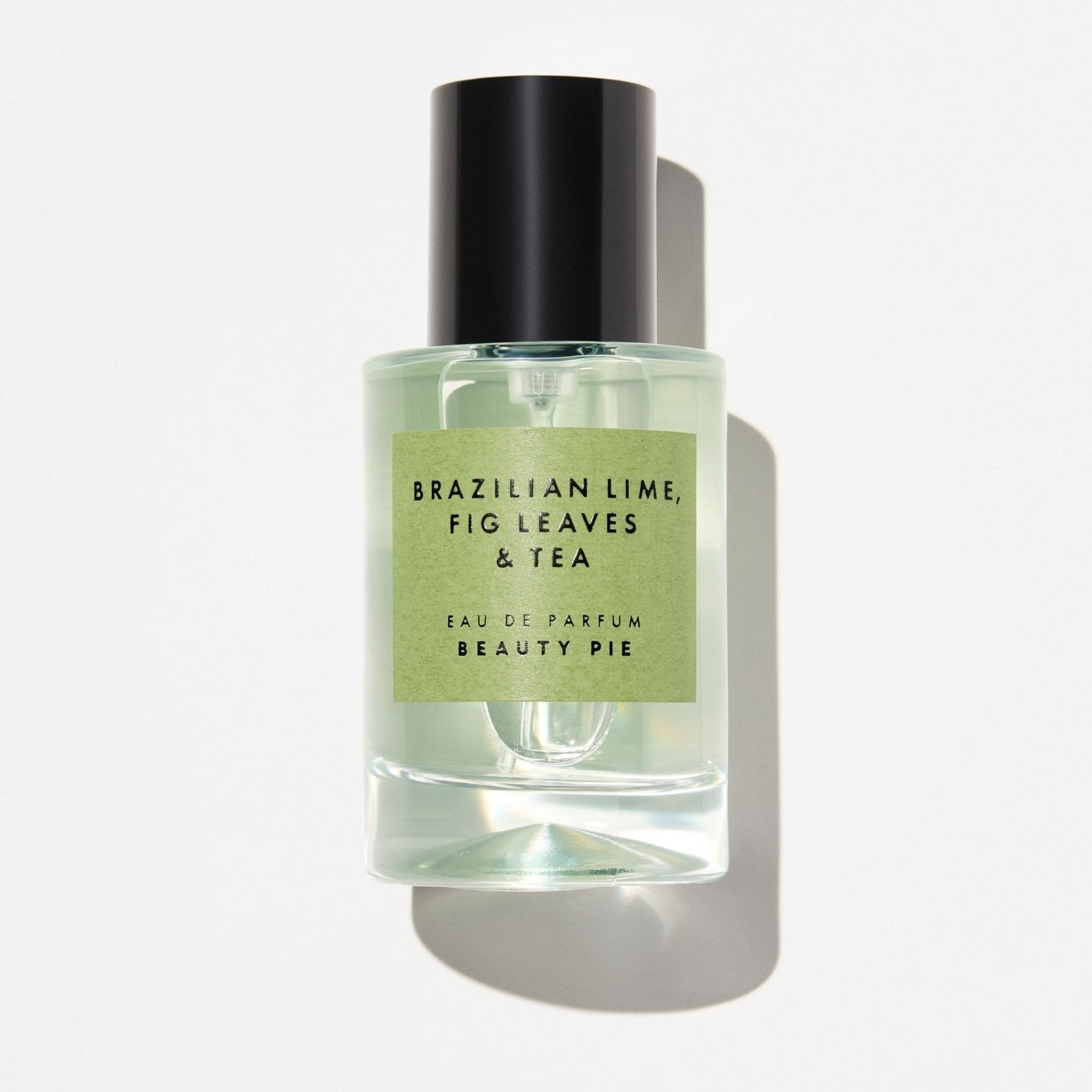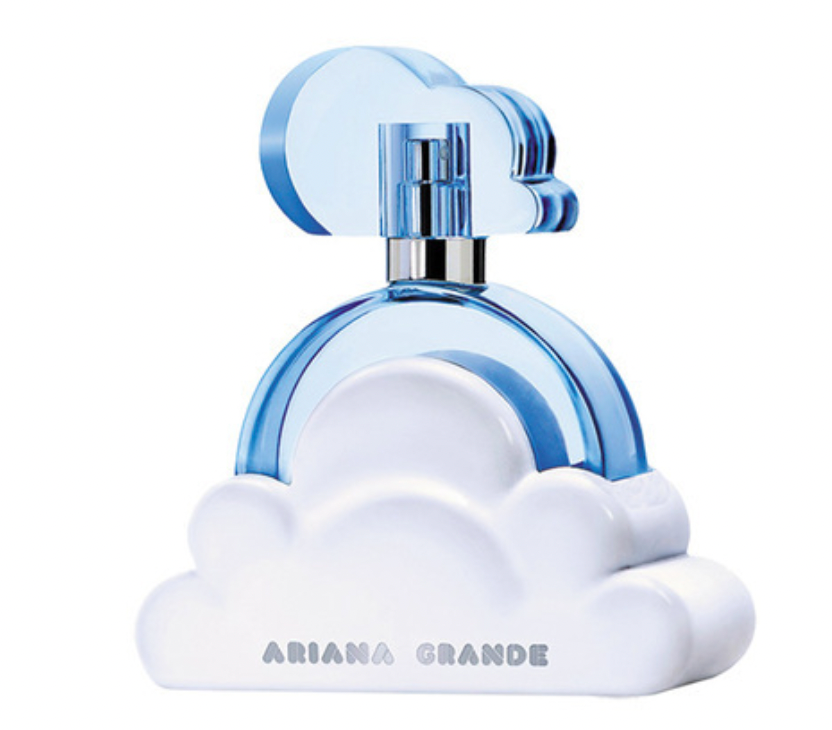What’s Your Problem With My £10 Perfume?
All linked products are independently selected by our editors. If you purchase any of these products, we may earn a commission.
Photographed by Caroline Tompkins.
One thing about me is that I’ll always tell you when I’ve found a bargain. My jacket? I thrifted it! My shoes? Thanks, they were on sale! With the cost of living remaining high, we’re embracing spending less on clothes, spurred on by apps like Vinted and eBay. But a recent interaction proved that inexpensive beauty products — particularly perfumes — are rarely met with the same enthusiasm.
I discovered the Marks & Spencer fragrance collection along with millions of other perfume enthusiasts on TikTok this spring. At just £10, the perfumes were considered excellent value for money and some were even said to be “dupes” for designer brands like Viktor & Rolf and Carolina Herrera. I fell for one scent, Orange Blossom & Amber, and I wore it on repeat all summer. The compliments came rolling in, until one day when a few friends were a little too honest in their opinions — but only after I had revealed the brand.
AdvertisementADVERTISEMENT
“On second thought, it smells a bit cheap,” one said over her coffee. Another chimed in, “Yeah, and I didn’t have you down for wearing something like that.”
My phone was obviously listening to the conversation because the first TikTok video I saw when I opened the app later was about “controversial” perfume opinions, namely what TikTok has coined “perfume elitism”. In a viral video, TikToker Emma aka @Perfumerism said, “I totally disagree with the elitism that comes with fragrances. Recently, I bought a $5 fragrance from Bath & Body Works and I got comments telling me I was ‘too good for that’. It’s like, ‘What do you mean?’ We can enjoy scents that don’t cost a hundred dollars.”
@perfumerism 3 of my controversial takes on perfume (+ perfumetok) #perfumetiktok #hottakes #fragrance #maceration #cologne ♬ [Do not disturb your voice] Heartwarming BGM(983631) - Kids Sound
The video amassed a number of comments in agreement. “Elitism!!!! Like should I only smell good if the fragrance was $200???” asked one. Another wrote, “HARD on the elitism! Miss So..? has some really good body mists for like £7 that I really enjoy! If it's good and cheap, isn't that even better?”
What exactly is fragrance elitism?
Fragrance elitism is clearly provoking people on TikTok but is it actually elitism? According to the Cambridge Dictionary, elitism is the “belief that some things are only for a few people who have special qualities or abilities”, like education, for example. When it comes to perfume, the semantics have changed slightly. Now it’s more colloquial.
I got in touch with Emma, who told R29, “Fragrance elitism is an attitude or belief that certain brands, fragrances or scent profiles are more 'elite', 'exclusive' or 'better' than others.” Emma first came across the concept while working on a perfume counter. “Fragrance elitists might turn their nose away at the idea of a £20 fragrance, or they might consider someone to have 'poor taste' if they enjoy any remotely popular scents,” — like celebrity perfumes, she explained.
AdvertisementADVERTISEMENT
Fragrance and beauty educator Maiya Nicole calls such folk “scent snobs”. She says, “Their tastes are dictated solely by cost and exclusivity. For them, fragrances that are readily available to the masses — think easily accessible, including scents with social media popularity — aren’t worth the time of day.” Coincidentally, every offering from highbrow brands (often with hefty price tags) is given an instant gold standard label, says Nicole. Typically, those who are elitist towards certain perfumes tend to look for “niche” fragrances, which are usually made in small quantities with natural or rare ingredients. But as perfume has become an affordable luxury, it seems that more and more people are becoming not-so-secret scent snobs.
Why are people quick to talk down on cheaper fragrances?
To Nicole, a scent snob isn't a true lover of the art of fragrance, but a lover of perceived status. So when did perfume become a status symbol? Emma thinks it has something to do with the desire to find the elusive “signature scent”, a fragrance that defines you and reflects your personality. Like designer fashion, jewellery or cars, Nicole believes that people think it says something about them if they can prove they have the funds to invest major money in how they smell. “Too often, people associate certain brand names with quality,” she says. Take Maison Francis Kurkdjian. Its most viral perfume, Baccarat Rouge 540, was described as a “black tie ball” or “penthouse apartment” in perfume form by fragrance obsessives, and wearing it was basically manifestation.
AdvertisementADVERTISEMENT
On the flipside, anything too familiar or lacking prestige is deemed less impressive or worthy by scent snobs, says Nicole. One thing is clear: The perfume we choose to wear is indicative of the lifestyle we want to lead. “A lot of people see their fragrance as an extension of themselves, especially as it’s so intertwined with identity,” says Emma. “It makes sense to want to invest in ourselves, and to want people's sensory encounters with us to leave a positive impression, which is what [a lot of] expensive and niche brands offer.” Emma points out that, unlike a shouty designer bag or a flashy pair of shoes, perfume is understated. “It’s the new quiet luxury,” she says.
Is there any difference between cheap perfume and more expensive brands?
I understand scent snobbery. If you’ve spent a hefty amount on perfume, you’ll want to feel justified in doing so. But here’s the thing: Besides marketing and brand names, there isn’t much difference between cheap and more expensive perfumes.
“People generally assume that cheap fragrances mean that they are unethical, don’t last and are made with crap ingredients,” says fragrance presenter and writer Alice du Parcq. None of this is true. “A lot of affordable fragrances are really well made because chances are, they are made by the same people behind expensive luxury fragrances,” she adds.
The perfume world is pretty small. A good example of this is Glossier, says du Parcq. “The master perfumer Frank Voelkl co-created Le Labo Santal 33, one of the most famous (and expensive) fragrances. But he also co-created Glossier You, which is £40, as well as the new Glossier You Doux and Rêve.” Du Parcq also mentions renowned French perfumer Jérôme Epinette, the nose behind Victoria Beckham’s £245 perfumes. “He makes big-deal fragrances for major luxe brands, but he also makes fragrances for the high street store & Other Stories, which are £28 each,” says du Parcq. They aren’t the only ones; Nicole tells me that Francis Kurkdjian, of Baccarat Rouge 540 fame, created Elizabeth Arden’s Green Tea, which retails for just £29.
AdvertisementADVERTISEMENT
According to du Parcq, a perfumer of this calibre will never use “rubbish” ingredients. “That’s not a method in their creative process,” she says. “Instead, they’ll use beautiful, raw, natural ingredients, although probably in much smaller quantities. They’ll then support those with good quality biosynthetics, which are skin-safe, sustainable ingredients and have great lasting power.” As for biosynthetics, the cost per gram or millilitre is often much less than using raw natural ingredients, so this keeps the cost down, says du Parcq. Conversely, Amanda Carr, fragrance trend forecaster and cofounder of We Wear Perfume, says that niche brands tend to use more unusual ingredients, which can be expensive. (Emma cites orris butter, which she says can be even pricier than gold per kilogram.) “Niche fragrance is also often more intense, with eaux de parfum frequently reaching 25% perfume oil concentration — sometimes even 30%,” says Carr. This makes the fragrance last much longer.
Another thing that makes perfume expensive is its packaging, as du Parcq explains. “Some use UV-coated glass to maintain the integrity of the juice inside, and this innovation costs money.” Affordable fragrance brands can cut prices, especially if they’re creating products on a larger scale. Then there’s the spray mechanism. “When you spray Chanel, there’s a feeling to it,” says du Parcq. “It’s effortless, silky and it has this beautiful flow. That is part of the luxury experience and costs money to make.” Lastly, there’s the way the perfume is marketed. “Marketing people will sit around a table and say, ‘If we price [our perfume] at £200 it will sell more,’ — and that’s a marketing tactic,” she adds.
AdvertisementADVERTISEMENT
Nicole has come across expensive fragrances with poor performance and affordable fragrances that completely wowed her. “More often than not, you’re paying for the prestige and exclusivity of a brand,” she says. “The truth is that in a ‘blind’ test the average person wouldn’t be able to easily differentiate between a £20, £120 or £420 scent — unless you’re carrying around the bottle and announcing it to people.” No one who smells you or smells your fragrance will say, “I wish this person spent £100 more on this,” adds Nicole.
Are perfume dupes ethical?
So where do perfume dupes come in? Brands like Dossier and Aldi have made a name for themselves thanks to their impressive designer perfume copies, but they’re a contentious topic. On one hand, dupes are said to rip off the work of more established brands. On the other hand, they are seen to democratise beauty, and with the cost of living at a high, it’s important not to judge where people spend their money. The experts have thoughts, though.
“I have a pretty low opinion of dupes, because they rarely offer good value for money for the consumer — and it’s cheating in my eyes,” says Carr. “The amount of fragrance oil used is often tiny, so they might smell good for 10 minutes, then they will likely fade.” Emma talks openly about dupes on her TikTok page, because she believes that fragrance should be accessible. But all the experts interviewed for this article agree on one thing: There are countless, affordable, high-quality perfume brands that aren’t second-rate copies of luxury versions.
AdvertisementADVERTISEMENT
What are the best affordable perfumes?
Du Parcq champions Beauty Pie and Marks and Spencer especially. After posting about M&S’ Discover Sunset perfume, she says that she had hundreds if not thousands of people DMing her to tell her that they’d found a bottle, love it, and feel proud to tell people that it’s a high street fragrance. Nicole agrees that there are plenty of affordable ways to explore fragrance without duping. “Skylar and and Zara have some great fragrances,” she says. Meanwhile, Carr rates Roger & Gallet and says that the Zara Cities collection, crafted by Jo Malone, is “exceptional”.
I also put the question to a handful of my beauty editor peers. Denise Primbet, beauty journalist at Glamour, is a huge fan of Ariana Grande’s Cloud, £35, with juicy pear, zingy bergamot and comforting lavender. Beauty writer Ata-Owaji Victor is equally enamoured with Floral Street’s Wonderland Peony, £29, with tart guava and berries, while I love Beauty Pie’s Brazilian Lime, Fig Leaves and Tea, £28.
If I’ve learnt anything from the experts, it’s that while perfume is entirely subjective, breaking the bank isn’t necessary to smell great. With that in mind, Nicole sums up scent snobbery perfectly. “When people are caught up on the price of something, they cheat themselves out of the possibility of being delighted,” she says. Emma is inclined to agree: “You will never prise my £3.79 Nemat Vanilla Oil away from me.”
shop 5 products
AdvertisementADVERTISEMENT







